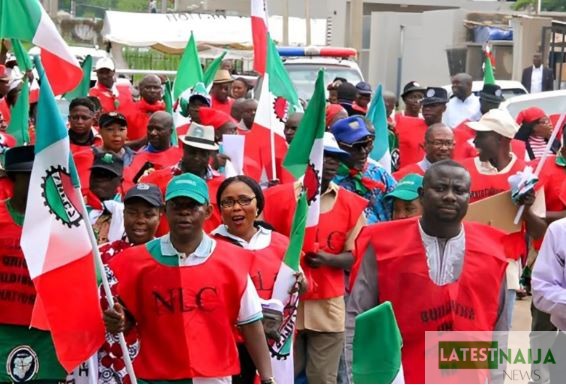
As President Bola Tinubu prepares to send a new minimum wage bill to the National Assembly, concerns arise that many states may go bankrupt if the wage is implemented. A report by the Nigeria Governors’ Forum warns that the increased recurrent expenditure could push states into deficit, with only a few remaining financially stable.
According to the report, Abia, Ekiti, Gombe, Imo, Katsina, Kogi, Oyo, Plateau, Sokoto, Yobe, and Zamfara were already in deficit in 2022. The proposed N62,000 minimum wage would necessitate over a 100% increase from the current N30,000, potentially leaving only a few states like Anambra, Bayelsa, Borno, Ebonyi, Gombe, Imo, Jigawa, Kaduna, Lagos, and Rivers with positive net revenues.
Labour unions have reacted to the stance of the Nigeria Governors’ Forum, accusing many state governors of flouting the Minimum Wage Act. The Assistant General Secretary of the NLC, Chris Onyeka, listed Abia, Enugu, Bayelsa, Delta, Nasarawa, Gombe, Adamawa, Niger, Sokoto, Imo, Anambra, Taraba, Benue, and Zamfara as defaulting states.
However, some states have commenced payment of the N30,000 minimum wage and its consequential adjustment. Enugu State began payment in February 2020 for state government workers, while Zamfara State announced it would start paying the minimum wage effective June 2024.
The Nigeria Governors’ Forum report has sparked concerns about the financial implications of implementing the new minimum wage, with fears that many states may be pushed into bankruptcy.


Comments are closed.